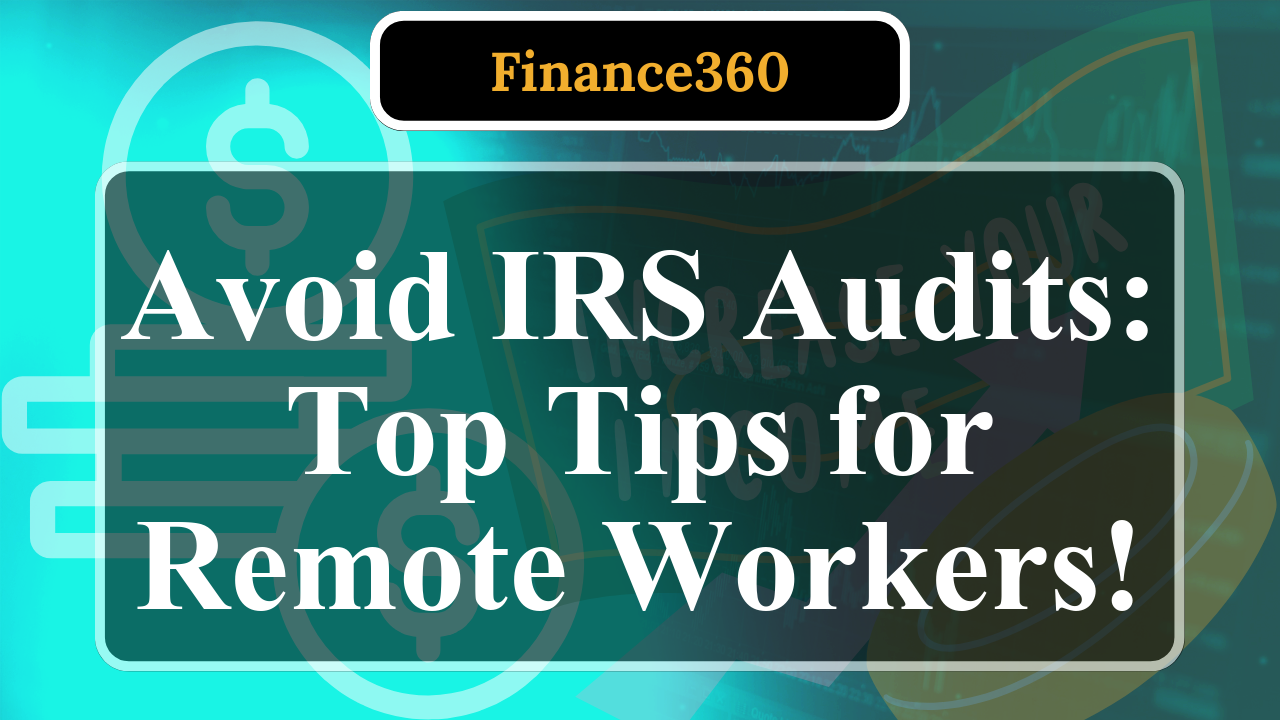A guide for remote workers to minimize IRS audit risks by ensuring accurate income reporting, proper deductions, and organized records. Learn key strategies like avoiding excessive home office claims, maintaining clear documentation, and consulting tax professionals to stay compliant and reduce scrutiny.
Navigating Tax Compliance: Tips to Avoid IRS Audits for Remote Workers
As a remote worker, whether you’re a freelancer, independent contractor, or telecommuting employee, navigating tax season can feel like walking through a minefield. The IRS audits less than 1% of individual tax returns annually, but self-employed individuals, including many remote workers, face higher scrutiny due to the complexity of their tax filings. For those filing Schedule C to report business income, the audit rate is slightly higher, often due to discrepancies in reported income or deductions. Here’s how you can minimize your risk of an IRS audit while working remotely.
Report All Income Accurately
The IRS receives copies of forms like 1099-NEC or 1099-K from clients and platforms, which report your income as a remote worker. Failing to report all income is a major audit trigger. For example, if you earn $600 or more from a client, they’ll issue a 1099-NEC, and the IRS will cross-check this against your return. Ensure every dollar from freelance writing, consulting, or gig work is reported on your Schedule C. Even small amounts, like $25 from a one-off project, must be included. Use accounting software like QuickBooks or Wave to track payments and cross-reference with 1099s before filing.
Be Cautious with Home Office Deductions
The home office deduction is a popular but heavily scrutinized tax break for remote workers. To qualify, your workspace must be used exclusively and regularly for business—no guest bedrooms or kitchen tables. The IRS flags claims that seem excessive, like deducting 80% of a 1,300-square-foot home. Calculate the deduction based on the square footage of your dedicated office space, and keep records of rent, utilities, or mortgage interest to substantiate claims. For instance, if your office is 150 square feet in a 1,500-square-foot home, you can deduct 10% of eligible expenses. Photos of your workspace and receipts can bolster your case during an audit.
Avoid Excessive or Unrelated Deductions
Claiming deductions unrelated to your remote work, like personal travel or meals, raises red flags. For example, deducting a vacation as a “business trip” or claiming 100% of your internet bill when only 50% is for work can trigger scrutiny. The IRS allows deductions for expenses directly tied to your business, such as software subscriptions for writing or virtual meeting tools. Keep detailed receipts and logs—digital tools like Evernote or Expensify can help. If you’re a freelance writer, claiming a boat as a business expense would be an obvious mismatch and likely lead to an audit.
Maintain Meticulous Records
The IRS requires you to keep records for at least three years from the filing date, though audits can sometimes go back six years for significant errors. Organize digital and physical records, including invoices, bank statements, and mileage logs for business-related travel. For remote workers, separating personal and business expenses is critical. Use a dedicated business bank account to avoid mixing funds, which can confuse auditors. If claiming mileage for client meetings, apps like MileIQ can automatically track and categorize trips. Well-organized records not only reduce audit risk but also streamline the process if one occurs.
File on Time and Avoid Math Errors
Late filings or mathematical mistakes can prompt IRS notices. Use tax software like TurboTax or H&R Block to minimize errors, as they flag inconsistencies before submission. Double-check that numbers on your W-2s, 1099s, and other forms match your return exactly. Avoid round numbers—like claiming exactly $5,000 in expenses—as they can look suspicious. If you file electronically, include explanations for large fluctuations, such as a drop in income due to losing a major client, to preempt IRS questions.
Consult a Tax Professional
Remote workers with complex income streams, such as multiple 1099s or international clients, benefit from professional guidance. A certified public accountant (CPA) or enrolled agent can ensure compliance with tax laws and review your return for potential red flags. For example, claiming the Foreign Earned Income Exclusion (FEIE) for income earned abroad requires precise documentation, and errors can trigger audits. Professionals can also represent you during an audit, reducing stress. Low-income taxpayers may qualify for free assistance from Low Income Taxpayer Clinics.
Understand Audit Triggers Specific to Remote Work
High-income remote workers, particularly those earning over $1 million, face greater audit risk due to the IRS’s focus on underreported income. Similarly, claiming consistent business losses on Schedule C—say, three out of five years—can signal to the IRS that your remote work is a hobby, not a business. If you’re a freelance writer reporting losses annually, keep detailed records showing your intent to profit, like marketing expenses or client contracts. Additionally, avoid aggressive tax avoidance schemes, such as offshore accounts, which are heavily scrutinized.
Respond Promptly to IRS Notices
If you receive an audit notice, don’t panic—most audits are conducted by mail and focus on specific items like deductions or income. Respond within 30 days with requested documents, and avoid sending unnecessary paperwork that could invite further scrutiny. If you disagree with the IRS’s findings, you can request a conference with an examiner’s manager or file a protest with the IRS Independent Office of Appeals. Acting quickly and professionally can resolve issues without escalating to a full audit.
Disclaimer: This article is for informational purposes only and does not constitute legal, tax, or financial advice. Consult a tax professional for personalized guidance. Information is sourced from IRS publications, tax professional insights, and reputable financial websites.
